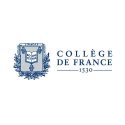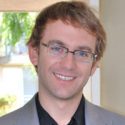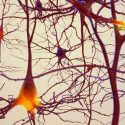If and how a tumor develops, depends in large part on its surroundings. While scientists agree on the importance of the tumor environment (TE), there is no consensus on how to define and spatially delineate it.
A new paper by Lucie Laplane, Dorothée Duluc, Nicolas Larmonier, Thomas Pradeu and Andreas Bikfalvi lays out six clearly defined layers that surround the tumor: (i) the tumor cell-only environment, (ii) the niche, and the (iii) confined, (iv) proximal, (v) peripheral, and (vi) organismal tumor environment. The authors show the different tumor-promoting or -suppressing mechanisms at work in the different layers and how they impact therapeutic approaches.
Click here for more information: The Multiple Layers of the Tumor Environment
Click here for the PDF
Tag Archives: News
Thomas Pradeu on the microbiome at the College de France
On June 29th 2018, Thomas Pradeu gave a talk on “Microbiome: The Second Immune System” at the Collège de France, invited by Philippe Sansonetti (Chair in Microbiology and Infectious Diseases) at the Symposium “Microbiome and Human Evolution: (Micro)Biology Meets Anthropology”
The talk builds on collective work, published in: Chiu L., Bazin T. (co-first authors), Truchetet M-E., Schaeverbeke T., Delhaes L. & Pradeu T. (2017), Protective Microbiota: From Localized to Long-Reaching Co-Immunity. Frontiers in Immunology, Volume 8, Article 1678. (Open Access).
Video:
Video download
Thomas Pradeu at the College de France
On June 29th 2018, Thomas Pradeu gave a talk on “Microbiome: The Second Immune System” at the Collège de France, invited by Philippe Sansonetti (Chair in Microbiology and Infectious Diseases) at the Symposium “Microbiome and Human Evolution: (Micro)Biology Meets Anthropology”
The talk builds on collective work, published in: Chiu L., Bazin T. (co-first authors), Truchetet M-E., Schaeverbeke T., Delhaes L. & Pradeu T. (2017), Protective Microbiota: From Localized to Long-Reaching Co-Immunity. Frontiers in Immunology, Volume 8, Article 1678. (Open Access).
Video:
Video download
Jacob Stegenga, Visiting Scholar in ImmunoConcept lab
Jacob Stegenga will be an IDEX Visiting Scholar in Thomas Pradeu’s group at ImmunoConcept from October 2018 to June 2019.
Jacob is a University Lecturer in philosophy of science at the University of Cambridge (Department of History and Philosophy of Science). His research focuses on methodological problems of medical research, conceptual questions in evolutionary biology, and fundamental topics in reasoning and rationality. Stegenga’s present work is culminating in a book titled Medical Nihilism (Oxford University Press, 2018), in which he argues that if we attend to the extent of bias in medical research, the thin theoretical basis of many interventions, the malleability of empirical methods in medicine, and if we employ our best inductive framework, then our confidence in medical interventions ought to be low. His research employs empirical findings, analysis, and formal methods to establish normative conclusions about science.
Before going to Cambridge, Stegenga taught at University of Utah and University of Victoria, and was a Banting Postdoctoral Fellow at University of Toronto. He received his PhD from the University of California San Diego.
Research interests
Philosophy of science, philosophy of biology, philosophy of medicine
Selected publications
For a complete list of publications, please see Jacob’s Academia.edu site.
Medical Nihilism, Oxford University Press, 2018
Care and Cure: An Introduction to Philosophy of Medicine, University of Chicago Press, 2018
‘Three Arguments for Absolute Outcome Measures’ (with Jan Sprenger), forthcoming, Philosophy of Science
‘Population Pluralism and Natural Selection’, The British Journal for the Philosophy of Science 2016 67: 1–29
‘Measuring Effectiveness’, Studies in History and Philosophy of Biological and Biomedical Sciences 2015 54: 62–71
‘Probabilizing the End’, Philosophical Studies 2013 165: 95–112
‘Is Meta-Analysis the Platinum Standard of Evidence?’, Studies in History and Philosophy of Biological and Biomedical Sciences 2011 42: 497–507
2017 Callebaut Prize for Lynn Chiu
See ISHPSSB website
The Callebaut Prize was established in 2015, and is awarded every two years. It is intended to advance the careers of recent graduates working at the intersection of the fields represented by ISHPSSB by recognizing the best manuscript utilizing an interdisciplinary approach based on a presentation at one of the two previous ISH meetings by someone who was, at the time of presentation, a graduate student. The prize is named in honor of Werner Callebaut, whose untimely death in 2014 was mourned by the philosophy of biology community worldwide and particularly ISH members, and who made considerable contributions to the promotion of constructive dialogue and reciprocal respect in philosophical and scientific work, hence making a prize focused on interdisciplinarity most appropriate.
We are grateful to individual donors who have supported this prize, as well as to the Konrad Lorenz Institute for Evolution and Cognition Research (KLI) for support for the first three prizes.
For the 2017 Prize, the Prize Committee received 4 submissions. All were of very high quality, with several already published or accepted for publication. The Committee was struck by the diverse interpretations of interdisciplinarity represented, and the importance of ISH to graduate students due to its support for interdisciplinary research, as was frequently noted in the cover letters provided by the applicants.
This year’s Werner Callebaut Prize is awarded to Lynn Chiu for her paper “The Birth of the Holobiont,” which was presented at the 2015 ISHPSSB meeting in Montréal. A revised version of the paper, co-authored with Scott Gilbert, was published in the journal Biosemiotics in 2015. The paper has already received an award from this journal, which remarked on its interdisciplinarity and uniqueness as a collaboration between a senior scientist and a junior philosopher. Dr. Chiu completed her PhD at the University of Missouri in 2015, and is currently a postdoctoral researcher at the ImmunoConcept Lab at the University of Bordeaux/CNRS.
Lynn Chiu and Scott Gilbert
Drawing on recent philosophy of biology literature and on rich biological literature, this paper proposes a new “birth narrative” based on the view that humans are not monogenetic multicellular organisms but rather “holobionts,” that is, eukaryotes composed of multiple symbionts. This paper stood out both because of the clarity and stringent organization of its argument and its timely topic, but also because it makes a genuine intellectual contribution to the field. Much of the work in applied philosophy of science or integrated HPS is unidirectional: scientific episodes serve to illustrate or test philosophical conceptions, or else outstanding scientific achievements are explored in the hopes of generating new philosophical ideas. Such work is typically done to contribute to and advance the philosophy of science.
But the committee agreed that in this paper we have truly interdisciplinary work: the application of concepts from philosophy of biology and cognitive science (the situated cognition and bounded rationality literature) to a scientific conception adds something both to the scientific discussion of human reproduction and to philosophical discussions about individuals, evolution, and development as well as having interesting implications for the historiography of immunology and bacteriology.
Lynn recounted to the committee that she was particularly honored to apply for this prize since Werner Callebaut literally made this paper possible. She wrote: “The last time I saw Werner was at the 2015 EuroEvoDevo in Vienna. He had encouraged me to submit a (different) philosophical paper to a purely scientific session… And there I was, finding myself presenting to no one else but my college science hero developmental biologist Scott Gilbert, who invited me to have a chat during coffee break. As we talked sitting on the branches of a big tree outside, Werner passed by and, delighted by what he saw, snapped a photo of us. We then said our goodbyes. About two weeks later, Werner sent both Scott and I an email with our photo, with lovely comments about our conversations… in his response to Werner’s email, Scott invited me to write a paper together. I am immensely grateful that Werner witnessed this paper take shape and read it up to its penultimate draft.”
On behalf of ISHPSSB, I am pleased to award the 2017 Callebaut Prize to Lynn Chiu.
Rachel A. Ankeny (Chair), on behalf of the rest of the Callebaut Prize Committee:
Alan Love, Edna Suárez Díaz, Marta Halina, Pierre-Olivier Méthot, and Jutta Schickore.
Prizes
Prizes
Werner Callebaut Prize
Marjorie Grene Prize
David L. Hull Prize
Hull Prize
2017 Hull Prize citation for Richard Burian
2015 Hull Prize citation for Jane Maienschein
Grene Prize
2017 Grene Prize citation for Emily C. Parke
2013 Grene Prize citation for Lukas Rieppel and John Matthewson
2015 Grene Prize citation for Jun Otsuka
Callebaut Prize
2017 Callebaut Prize citation for Lynn Chiu
2015 Callebaut Prize citation for Sara Green
Sabina Leonelli on The Epistemology of Data Use
The Epistemology of Data Use: Conditions for Inferential Reasoning in the Age of Big Data Science
Sabina Leonelli (University of Exeter, UK)
Dec 1st, 2017
Center for Philosophy of Science, University of Pittsburgh (USA)
ABSTRACT: This talk examines the epistemology of data by addressing the challenges raised by ‘big data science’, and particularly the dissemination and re-use of large datasets via intricate and nested infrastructures such as digital databases. Empirically, my analysis is grounded on the in-depth qualitative study of “data journeys”, that is ways in which datasets are circulated and used for a variety of purposes across several different contexts. Conceptually, the talk brings my previous work on the relational nature of data to bear on existing philosophy of inductive reasoning and the triangulation of multiple lines of evidence (most prominently by John Norton, Alison Wylie and William Wimsatt), with the aim of outlining conditions under which big data can be used to reliably inform inferential reasoning. I conclude by highlighting five ways in which data science that fails to operate under such conditions could significantly damage scientific methods and the credibility of research outputs.
Launch of a new interdisciplinary seminar in philosophy of neuroscience at the IHPST in Paris
Daniel Kostic (IHPST) and Denis Forest (Paris 1 Panthéon-Sorbonne & IHPST) are pleased to announce the launch of a new interdisciplinary seminar in philosophy of neuroscience at the IHPST in Paris. The description of the seminar (both in English and in French) and a schedule can be found on this link: https://www.sites.google.com/site/danielkostic/topexseminars
The inaugural talk will be given by Jean Daunizeau (Institut du Cerveau et de la Moelle épinière, Paris) on Monday 02 October 2017 at 5 PM at the IHPST, Salle de Conférence (2nd Floor, 13 rue du Four, 75006, Paris). The title of his talk is: “Dynamic causal modelling of brain-behavior relationships”.
Abstract:
“In this work, we expose a mathematical treatment of brain-behaviour relationships, which we coin behavioural Dynamic Causal Modelling or bDCM. This approach aims at decomposing the brain’s transformation of stimuli into behavioural outcomes, in terms of the relative contribution of brain regions and their connections. In brief, bDCM places the brain at the interplay between stimulus and behaviour: behavioural outcomes arise from coordinated activity in (hidden) neural networks, whose dynamics are driven by experimental inputs. Estimating neural parameters that control network connectivity and plasticity effectively performs a neurobiologically-constrained approximation to the brain’s input-outcome transform. In other words, neuroimaging data essentially serves to enforce the biological realism of bDCM’s decomposition of input-output relationships. In addition, post-hoc artificial lesions analyses allow us to predict induced behavioural deficits and quantify the importance of network features for funnelling input-output relationships. This is important, because this enables one to bridge the gap with neuropsychological studies of brain-damaged patients. We demonstrate the face validity of the approach using Monte-Carlo simulations, and its predictive validity using empirical fMRI/behavioural data from an inhibitory control task. Lastly, we discuss promising applications of this work, including the assessment of functional degeneracy (in the healthy brain) and the prediction of functional recovery after lesions (in neurological patients).”
PhilInBioMed joins the EASPLS!
The Institute for Philosophy in Biology and Medicine joins the European Advanced Seminar in the Philosophy of the Life (EASPLS).
The EASPLS gathers the following institutions:
Centre for the Study of Life Sciences, University of Exeter
IAS-Research Center for Life, Mind & Society, University of the Basque Country, San Sebastian
Institut d’Histoire et de Philosophie des Sciences et des Techniques (IHPST) Paris-1 Sorbonne
Institute of Philosophy, Leibniz University Hannover
Faculty of Sciences and Department of Philosophy/Faculty of Humanities, University of Geneva
KLI (Klosterneuburg/Vienna)
PhilInBioMed (CNRS & University of Bordeaux)
The next EASPLS meeting will be held at the Konrad Lorenz institute for Evolution and Cognition Research (KLI), Klosterneuburg (Austria), September 10-14, 2018.







